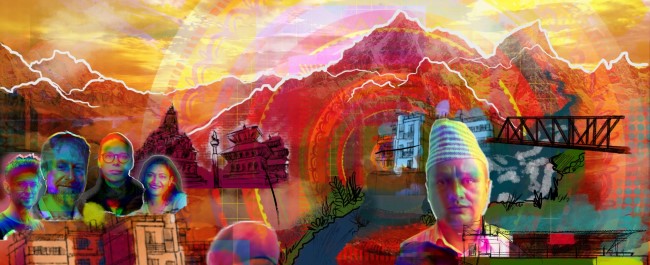Natural hazards and disaster risk
We are providing the evidence base and solutions to protect lives and livelihoods from natural hazards around the world.
Contact the natural hazards and disaster risk research leads
Dr Ryerson Christie (Sociology, Politics and International Studies)
Dr Liz Holcombe (Civil Engineering)
Prof Jenni Barclay (Earth Sciences)
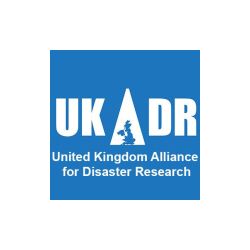 We are a founding member of the UK Alliance for Disaster Research
We are a founding member of the UK Alliance for Disaster Research
The UKADR is a national contact point - connecting the UK’s disaster research community and coordinating research efforts to reduce the global impacts of disaster.
The Cabot Institute hosted UKADR's second Annual Conference in Bristol in March 2018.
-
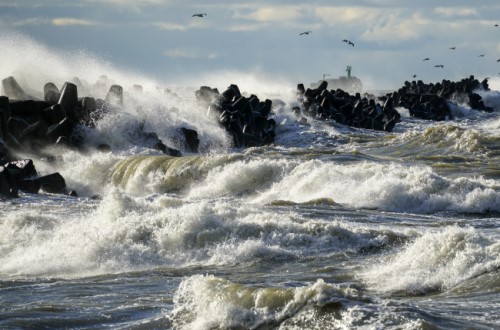 Structured porous breakwaters to protect UK coastlines from the effects of climate change
Sea-level rise and more frequent and intense storms are impacting coastal communities, with coastal flooding, erosion and damage to infrastructure. Novel breakwater designs have the potential to increase the resilience of UK coastlines to these climate change related events.
Structured porous breakwaters to protect UK coastlines from the effects of climate change
Sea-level rise and more frequent and intense storms are impacting coastal communities, with coastal flooding, erosion and damage to infrastructure. Novel breakwater designs have the potential to increase the resilience of UK coastlines to these climate change related events. -
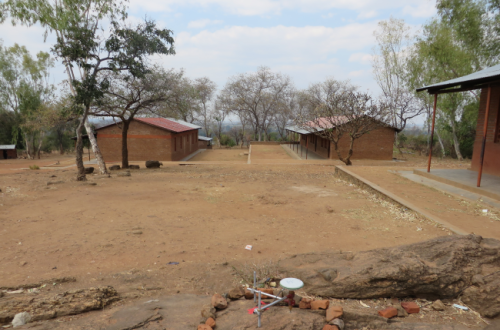 Seismic risk knowledge exchange in East Africa
Strengthening and broadening partnerships in East Africa around seismic risk, natural hazards, and resilience in the region.
Seismic risk knowledge exchange in East Africa
Strengthening and broadening partnerships in East Africa around seismic risk, natural hazards, and resilience in the region. -
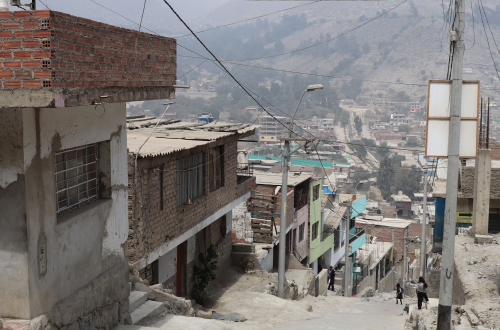 Mitigating everyday risks in Perú
We are improving the understanding and mitigation of frequently occurring natural hazards which cause a significant impact on livelihoods and wellbeing.
Mitigating everyday risks in Perú
We are improving the understanding and mitigation of frequently occurring natural hazards which cause a significant impact on livelihoods and wellbeing. -
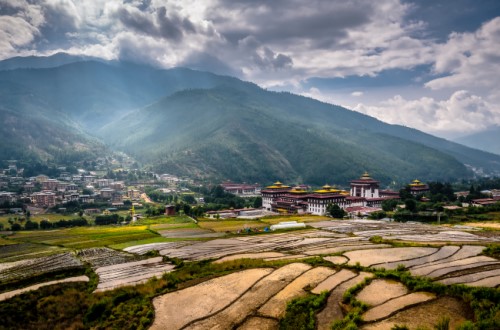 Risks and resilience in the high mountains
We are improving modelling of risks from changes in the cryosphere in the Hindu Kush Himalaya and helping to build the resilience of mountain communities.
Risks and resilience in the high mountains
We are improving modelling of risks from changes in the cryosphere in the Hindu Kush Himalaya and helping to build the resilience of mountain communities. -
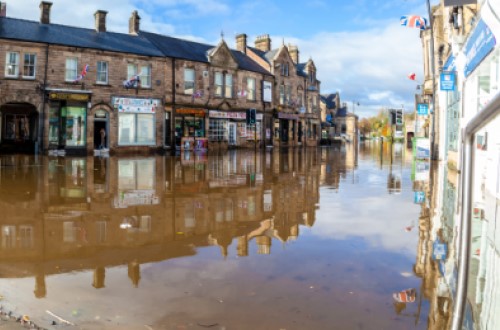 UK flood impacts from new local 2.2km climate projections
Making more accurate projections of the changing nature of UK flood risk in order to make the correct decisions within climate change mitigation and adaptation, development control, design of resilient infrastructure and flood management.
UK flood impacts from new local 2.2km climate projections
Making more accurate projections of the changing nature of UK flood risk in order to make the correct decisions within climate change mitigation and adaptation, development control, design of resilient infrastructure and flood management. -
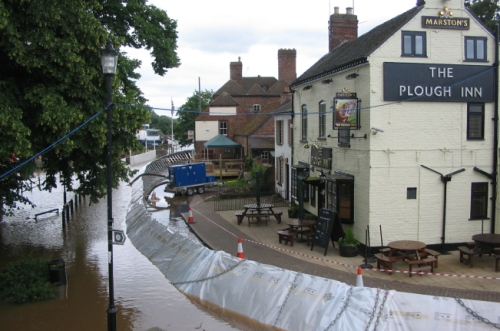 Unravelling the complexity of vulnerability, risk and resilience in flood hazard systems
We are becoming more vulnerable to natural hazards. Since 1950, the ongoing trend shows increasing losses from global catastrophes, but why is this?
Unravelling the complexity of vulnerability, risk and resilience in flood hazard systems
We are becoming more vulnerable to natural hazards. Since 1950, the ongoing trend shows increasing losses from global catastrophes, but why is this? -
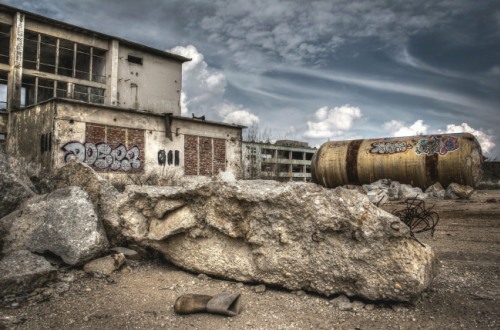 Re-evaluating Chernobyl
Improving our knowledge and understanding of the global radiological hazard associated with the world’s worst nuclear accident through an enhanced monitoring provision.
Re-evaluating Chernobyl
Improving our knowledge and understanding of the global radiological hazard associated with the world’s worst nuclear accident through an enhanced monitoring provision. -
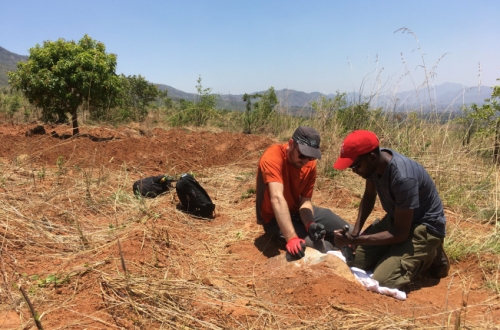 Helping East Africa get earthquake-ready
It’s taking tens of millions of years, but the African continent is splitting apart. As populations grow, the threat of major earthquakes rises too.
Helping East Africa get earthquake-ready
It’s taking tens of millions of years, but the African continent is splitting apart. As populations grow, the threat of major earthquakes rises too. -
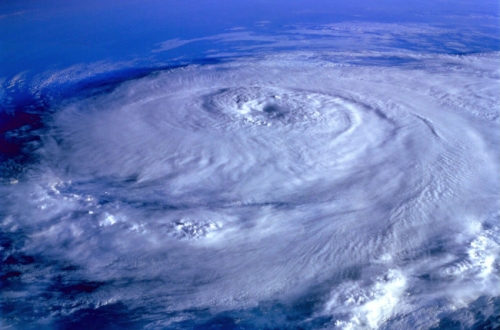 Mitigating hurricane risk in the Caribbean and beyond
Recent disastrous hurricane activity in the Caribbean highlights the urgent need to prepare appropriately for extreme changes in climate.
Mitigating hurricane risk in the Caribbean and beyond
Recent disastrous hurricane activity in the Caribbean highlights the urgent need to prepare appropriately for extreme changes in climate. -
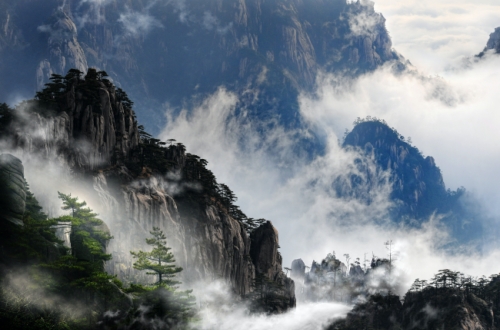 How the past is predicting the monsoon of the future
The East Asian monsoon fuels energy, industry and agriculture for over 1.5 billion people. How will it cope with rising CO2?
How the past is predicting the monsoon of the future
The East Asian monsoon fuels energy, industry and agriculture for over 1.5 billion people. How will it cope with rising CO2? -
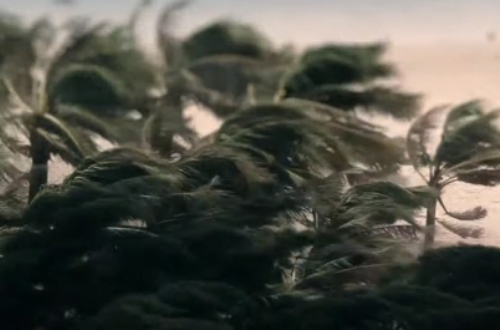 Planning for a warmer world: better predicting hurricane rainfall in the Caribbean
Hurricanes can savage small island states: the Caribbean has been battered by 264 of them since 1960. Will our changing climate alter their frequency or intensity?
Planning for a warmer world: better predicting hurricane rainfall in the Caribbean
Hurricanes can savage small island states: the Caribbean has been battered by 264 of them since 1960. Will our changing climate alter their frequency or intensity? -
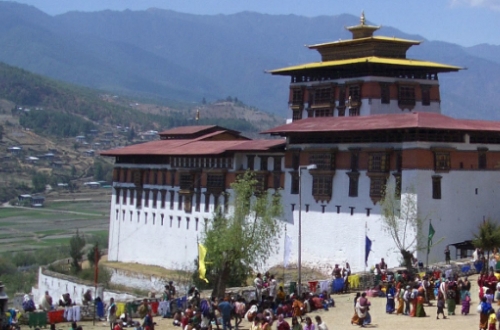 Ensuring Bhutan stays happy – and safe
Unlike its neighbours, Bhutan hasn’t experienced a major earthquake for some while. But is the clock ticking?
Ensuring Bhutan stays happy – and safe
Unlike its neighbours, Bhutan hasn’t experienced a major earthquake for some while. But is the clock ticking? -
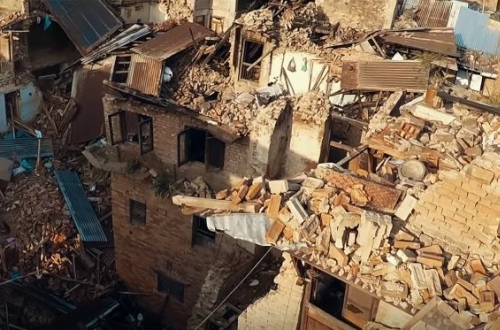 Earthquake lessons from history
South Asia has experienced many large earthquakes in the past hundred years. What can they teach us about disaster risk reduction?
Earthquake lessons from history
South Asia has experienced many large earthquakes in the past hundred years. What can they teach us about disaster risk reduction? -
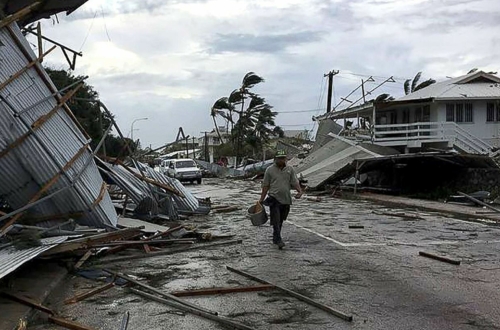 Prioritising help for the poorest hit by deadly natural disasters
A new statistical tool to help target resources following deadly natural disasters has been created, allowing governments to prioritise getting aid to the most vulnerable people.
Prioritising help for the poorest hit by deadly natural disasters
A new statistical tool to help target resources following deadly natural disasters has been created, allowing governments to prioritise getting aid to the most vulnerable people. -
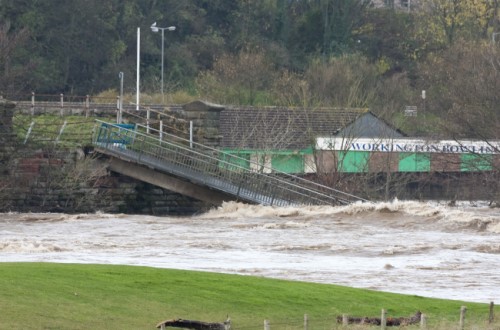 Resilience of transport networks to flood-induced bridge failures
Road networks are fundamental for keeping the country running safely and efficiently. Bridges are crucial elements of these networks, since they cross over otherwise impassable obstacles.
Resilience of transport networks to flood-induced bridge failures
Road networks are fundamental for keeping the country running safely and efficiently. Bridges are crucial elements of these networks, since they cross over otherwise impassable obstacles. -
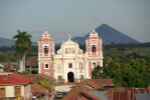 Risk, hazards, disasters and cultures: Exploring an integrated humanities, natural sciences, and disaster studies approach
Natural hazards have led to disasters throughout history. But with increasing populations and risk, what can historians and cultural scholars do to improve resilience around the world?
Risk, hazards, disasters and cultures: Exploring an integrated humanities, natural sciences, and disaster studies approach
Natural hazards have led to disasters throughout history. But with increasing populations and risk, what can historians and cultural scholars do to improve resilience around the world? -
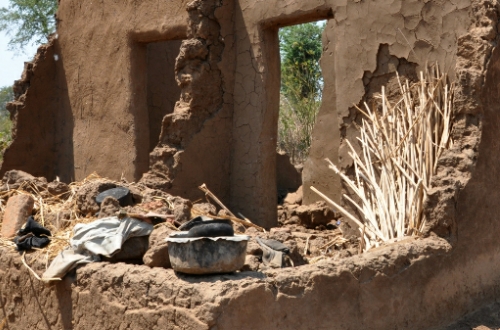 Helping East Africa get earthquake-ready
It’s taking tens of millions of years, but the African continent is splitting in two. As plates slowly shift, the threat of major earthquakes rises too.
Helping East Africa get earthquake-ready
It’s taking tens of millions of years, but the African continent is splitting in two. As plates slowly shift, the threat of major earthquakes rises too. -
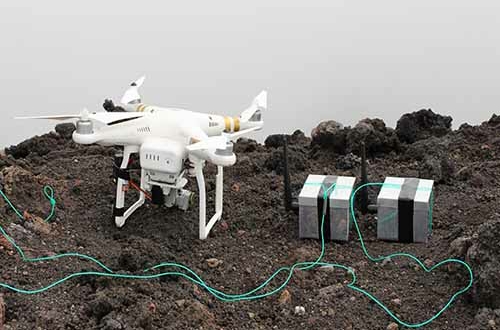 Dragon eggs: Drone-deployed remote environmental monitoring
We are developing sensor pods that can be delivered to a volcano by drone, transmitting data wirelessly, enabling the monitoring of inaccessible volcanoes.
Dragon eggs: Drone-deployed remote environmental monitoring
We are developing sensor pods that can be delivered to a volcano by drone, transmitting data wirelessly, enabling the monitoring of inaccessible volcanoes. -
 500x330.jpg) Building resilience to Peru’s attritional natural hazards
The damaging effects of localised ‘everyday’ hazards affect the most marginalised and critically limit development. But they often escape the wider world’s gaze.
Building resilience to Peru’s attritional natural hazards
The damaging effects of localised ‘everyday’ hazards affect the most marginalised and critically limit development. But they often escape the wider world’s gaze. -
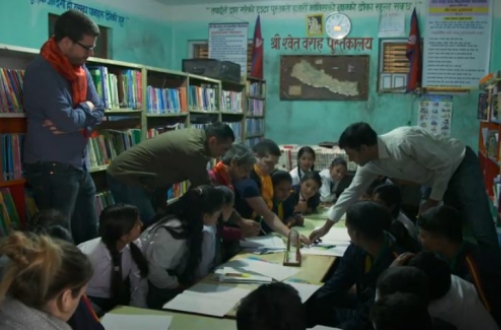 Protecting Nepal’s next generation from earthquakes
The devastation caused by the 2015 earthquake was immense: 9,000 lives lost, 3.5 million people left homeless, and entire neighbourhoods flattened. How do we stop that happening again?
Protecting Nepal’s next generation from earthquakes
The devastation caused by the 2015 earthquake was immense: 9,000 lives lost, 3.5 million people left homeless, and entire neighbourhoods flattened. How do we stop that happening again? -
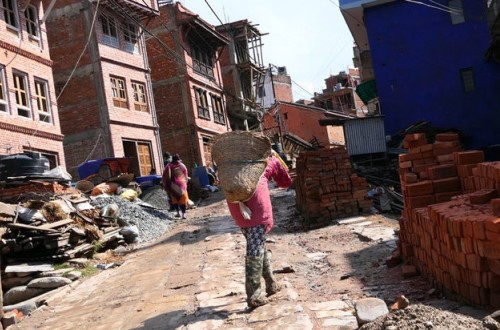 Reducing the vulnerability of tomorrow’s cities
Of the area expected to be urbanised by 2030, 60% is yet to be built. That gives us a golden opportunity to design hazard-resilient cities for our future – if we act now.
Reducing the vulnerability of tomorrow’s cities
Of the area expected to be urbanised by 2030, 60% is yet to be built. That gives us a golden opportunity to design hazard-resilient cities for our future – if we act now. -
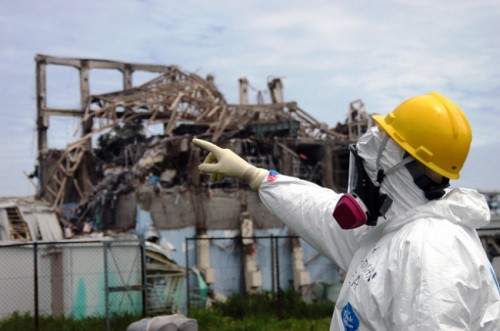 Consolidating global knowledge on hazardous Fukushima Daiichi Nuclear Power Plant particulate
What can be done to better understand nuclear fall-out and associated risk? And how can this information be used to repopulate affected areas?
Consolidating global knowledge on hazardous Fukushima Daiichi Nuclear Power Plant particulate
What can be done to better understand nuclear fall-out and associated risk? And how can this information be used to repopulate affected areas?
What we do and why we have an impact
-
World-renowned
We have deep expertise in every major natural hazard - flooding, volcanic risk, eruptions, landslides, tsunamis and extreme weather. Our academics are prized for their work - having received a Royal Medal, the Queens Anniversary Prize, the Lloyds Science of Risk Prize, the Vetlesen Prize (widely recognised as the Nobel prize of earth sciences) and two Wolfson Merit Prizes.
-
Expert advisors
We have provided expert advice and analysis to national and international governments, including the UK Natural Audit Office (for flood risk), the UK Scientific Advisory Group for Emergencies (for risk of volcanic ash), Guatemala's Government before and after the 2018 volcanic eruption, the UK Government's National Risk Register 2018 (for all UK environmental risks), and Japanese Governments following Fukishima (regarding the risk of radioactive waste). We retain a strong commitment to helping decision makers understand and mitigate the risks posed by natural hazards.
-
Societal insight
Our strength is our ability to fuse rigorous quantitative models with a deep understanding of how societies work. Through the arts and humanities we have explored how culture, local history, and understandings of resilience can impact disasters. And by working directly with communities, we have co-produced solutions to mitigate against landslide and volcanic risk.
